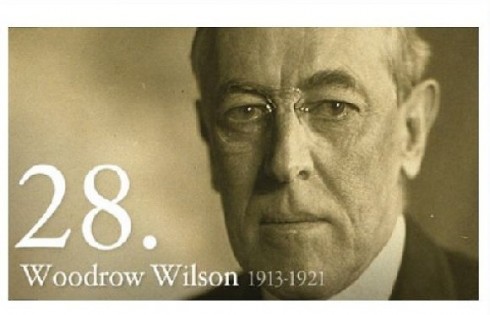
Republican state senator in Wisconsin, the higher ed committee chair, proposed unique solution to secure academic freedom, free expression
A sweeping new report by the chairman of the Wisconsin Senate Committee on Universities and Technical Colleges recommends a slate of new law changes to protect free speech and academic freedom on University of Wisconsin System campuses.
Sen. Roger Roth, a Republican from Appleton, released the 97-page report last week, which recommends civil immunity for public university administrators be modified in order to incentivize the leaders of UW System’s 26 schools to “more rigorously enforce existing policy relating to free expression.”
Under the plan, campus administrators, who may not be sued for certain actions taken in their official capacities, could now be held liable for violations of freedom of expression on campus. Currently universities are immune from civil lawsuits seeking damages, but the proposed changes, if passed, would allow plaintiffs to sue them as individuals.
“Crafting statutory exceptions to such immunities—for example, in cases relating to free speech rights under the state constitution— could create an incentive structure for UW System administrators to more rigorously enforce provisions of current UW System policy relating to free expression,” the report reads.
In a phone interview with The College Fix, Roth said he wasn’t aware of any other state passing a similar law, but he and his staff “stumbled on” the issue while talking through what could be done to promote free speech.
“The way it works now is that these administrators and chancellors get to hide behind the fact that they’re kind of untouchable,” Roth said. “So they can go out there and, eh, if they deny your constitutional rights, no big deal. There’s nothing you can really do to them. There’s no legal recourse, you can’t sue them because they have this qualified immunity.”
Roth emphasized he’s not proposing administrators and chancellors be held personally liable for infringing on free speech – instead, they would continue to be “backed up by the university system.”
“The point is, when they’re going to deny someone their constitutional rights, we want to make sure that students have recourse in the legal system and this seemed to be the best way to bring that about,” Roth said.
Under current law, universities can typically be sued to cease enforcement of a policy that infringes on an individual’s rights. In those cases, individuals within the university are typically named as defendants, whether they be chancellors, or members of a board of regents.
But Roth’s plan seeks to allow someone to sue a university for monetary damages for a rights violation. Under current law, a school cannot usually be sued for damages – under Roth’s proposal, an individual in the school who is accused of violating First Amendment freedoms could be sued personally, and the school could then indemnify that individual by paying them back.
As an example of how the law would work, Roth offered the example of Polly Olsen, a Northeast Wisconsin Technical College paralegal student who several years ago was barred from handing out religious-themed valentines on campus.
Olsen eventually won a lawsuit against the school and later testified in front of Roth’s committee, telling members schools are intimidating both students and instructors in an attempt to prevent them from expressing their political views on campuses.
For years, Republicans have been trying to codify campus speech protections in state law.
In 2019, the Wisconsin Assembly passed the “Campus Free Speech Act,” which required the UW System Board of Regents to adopt a policy on free expression and encouraged schools to punish those on campus who disrupt speakers and presentations.
Such “disruptions” were defined in the bill as engaging in “in violent or other disorderly conduct that materially and substantially disrupts the free expression of others.” The bill was largely a reintroduction of a bill from 2017 that passed the Assembly but failed to pass in the Republican-controlled Senate.
“We need to have the Wisconsin Campus Free Speech Bill to make sure everyone can be heard,” Assembly Speaker Robin Vos told The College Fix at the time. “We need more speech, not less. A university policy isn’t enough to protect free speech, this bill needs to become law.”
While the bill failed to pass, the UW Regents took action, passing a number of resolutions with similar provisions, confirming the system’s dedication to free expression on campus. One resolution required “one semester suspension for any student twice found responsible for misconduct and expulsion for any student three times found responsible for misconduct.”
Yet the rule accompanying this resolution has yet to take effect.
In February of this year, Roth’s committee held a hearing to take testimony on the issue of freedom of expression on campus. Among the speakers was the now-late Professor John McAdams of Marquette, who successfully sued his school after it suspended him for writing a blog post about a graduate instructor who banned discussion of same-sex marriage in class, saying it was a “settled issue.” McAdams noted that Marquette, a private institution, does receive some funding from the state, and that funding should be cut if the school did not permit freedom of expression on campus.
The committee also took testimony from law school Professor Ryan Owens, who in January of this year released a report suggesting that two-thirds of UW students think government should have the ability to punish “hate speech.”
“Generally, I believe students and campuses would greatly benefit from more first amendment training and increased emphasis on why free speech is important,” Owens told The College Fix on Thursday. “I think universities should do much more to expose students to the fundamentals of free speech.”
“I also believe universities must do far more to ensure a diversity of thought on campuses,” said Owens, who is now running for Wisconsin Attorney General. “The data show that faculty are overwhelmingly liberal in their views. And while many surely can teach ‘down the middle,’ we need to make sure that students are exposed to ideas across the political and ideological spectrum to prepare them for the world.
“Throughout history influential thinkers have faced repression, censorship, and backlash because their views offended the convention of an institution, often coming from those with whom they might otherwise align,” Roth said in his opening remarks before the committee.
“Socrates in ancient Greece, Galileo with his work on heliocentrism, Edmund Burke with his Reflections on the Revolution in France— thinkers who each provided significant contributions to academia that put them on the wrong side of the governing institutions in their day. Each an example of free thinking and resiliency that we should champion in our universities, particularly in a time when commitment to such free thought and rigorous debate is shunned in society.”
The report also recommends an independent commission of experts to study the impediments to free expression in the UW System.
“The importance of an independent commission would provide an outside perspective on the current culture within the UW System and highlight deficiencies in full view for review by the Board of Regents, students, faculty, the legislature, and the public,” the report reads.
In addition to the free speech components, Roth’s report also recommends restructuring UW System campuses into four geographic regions and lifting the tuition freeze currently in effect.
Roth told The College Fix that his plan is to eventually introduce each provision of his report as a separate bill, but he recognizes Democratic Gov. Tony Evers will likely veto anything that comes to his desk.
“The whole goal of this report was just recognizing the challenges facing higher education, and somebody needed to start by laying out a roadmap for the future,” Roth said. “We’ve got to start messaging and letting the people of Wisconsin know there’s a better future for higher education than what we’ve got now.”
The issue of qualified immunity has taken on new importance with regard to police actions, with many progressives calling for its suspension so law enforcement officers can be forced to pay damages for infringing on individual rights. Yet a number of the Democratic lawmakers across America who have introduced bills suspending qualified immunity for law enforcement officers have neglected to also include university employees who may be infringing on the rights of conservatives on college campuses.
MORE: Judge strikes down college that banned student from handing out ‘Jesus Loves You’ valentines
IMAGE: Shutterstock.com





Please join the conversation about our stories on Facebook, Twitter, Instagram, Reddit, MeWe, Rumble, Gab, Minds and Gettr.